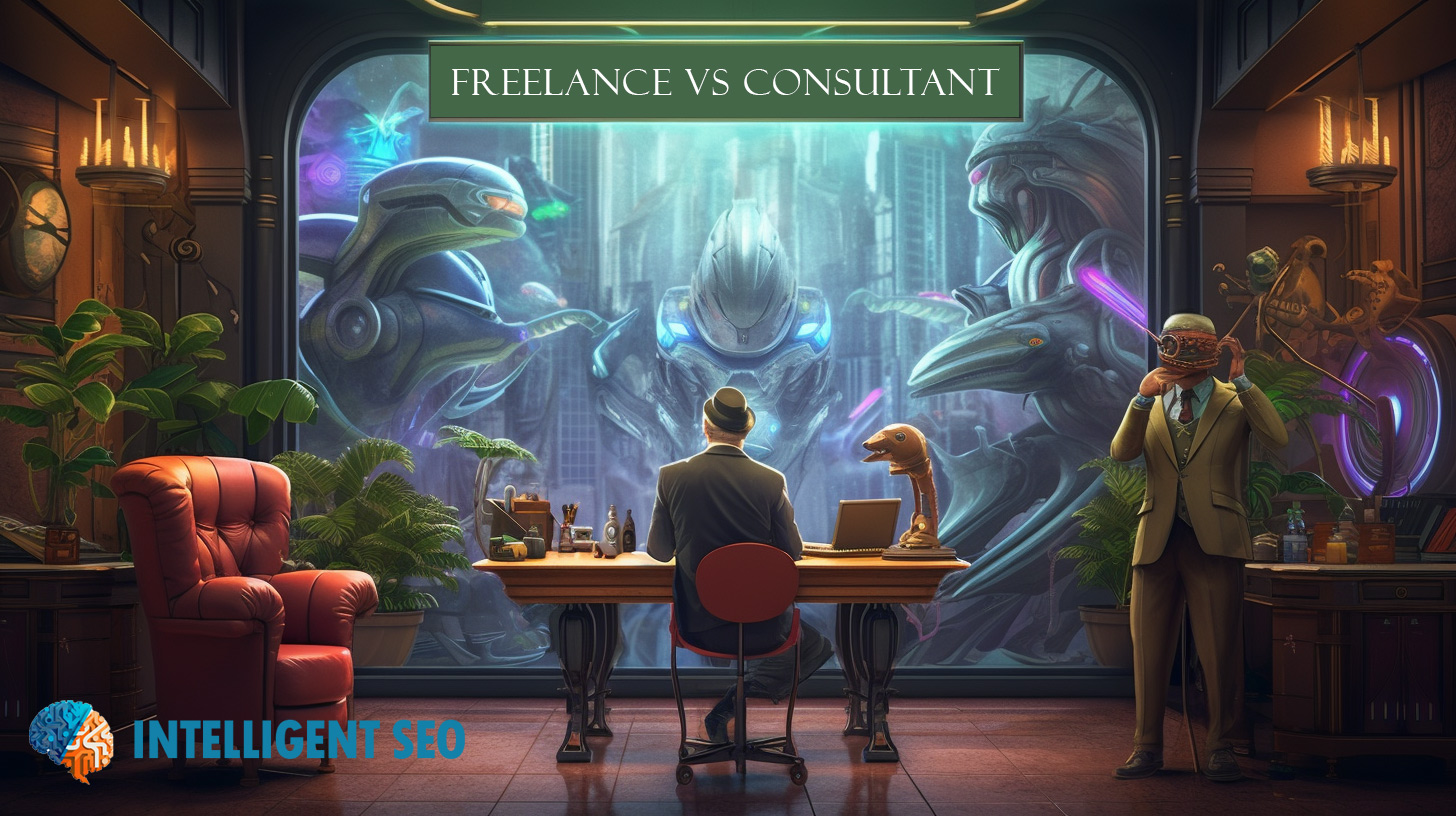Marketing
Freelancer Vs Consultant
When offering professional services to clients, two terms often used interchangeably are “freelancer” and “consultant”. While both provide specialised skills and knowledge, there are some key differences between the two roles. In this article, we’ll explore the advantages of each and how they can benefit both clients and professionals.
Freelancers
Freelancers typically work on a project-by-project basis and are self-employed individuals who offer specialised skills to clients. Freelancers may work in various fields, such as writing, graphic design, web development, or marketing. They often work remotely and may have multiple clients at once.
A freelancer is a self-employed individual who offers their services to clients on a project-by-project basis rather than working for a single employer.
One of the primary advantages of freelancing is flexibility. Freelancers can choose their hours and work from anywhere with an internet connection. This can be particularly beneficial for individuals who value work-life balance or have other commitments, such as caring for children or pursuing a side business.
Another advantage of freelancing is the potential for higher earnings. Because freelancers typically charge hourly or project-based rates, they can earn more money for their specialised skills and expertise. Freelancers can also set their rates based on market demand, industry standards, and experience level.
Freelancers also choose their clients and projects. This can be a significant advantage for those who want to work on projects that align with their interests or passions. Freelancers can also choose to work with clients who value their skills and expertise rather than being forced to do work that doesn’t interest them or pay well.
However, there are some potential drawbacks to freelancing as well. One of the biggest challenges is the lack of stability and predictability. Because freelancers work on a project-by-project basis, consistent work or income is not guaranteed. This can be stressful for individuals who need a steady income stream to support themselves or their families.
Another potential challenge is the lack of benefits and protections from traditional employment. Freelancers are responsible for their own health insurance, retirement savings, tax, and other benefits typically provided by employers. Freelancers also do not have the same legal protections as employees, such as unemployment benefits or protection from discrimination.

Consultants
In contrast, consultants are typically hired by businesses or organisations to provide expert advice and guidance on a particular topic. Consultants may work in various fields, such as management, finance, or marketing. They are often hired on a project basis or for a fixed period and may work with a team of professionals to achieve specific goals.
A consultant is a professional who provides expert advice and solutions to businesses, organisations, or individuals seeking help in a particular area of specialisation.
One of the primary advantages of consulting is the ability to work on high-profile projects with large businesses or organisations. This can be a significant advantage for individuals who want to work on projects that have a big impact or require specialised expertise. Consultants also have the opportunity to work with a diverse range of clients and industries, which can be beneficial for career growth and development.
Consultants also typically have more stability and predictability than freelancers. Because they are often hired for longer-term projects or contracts, consistent work and income are more likely. Consultants may also receive benefits and protections like those provided to traditional employees, such as health insurance or retirement benefits.
Another advantage of consulting is the potential for higher earnings. Because consultants are often hired for specialised skills and expertise, they can command higher rates than freelancers. Consultants may also be able to negotiate better contracts or terms of service, which can benefit long-term success.
However, there are also potential drawbacks to consulting. One of the biggest challenges is the potential for a lack of autonomy and control. Consultants may be required to work within certain parameters or guidelines, which can limit their ability to make decisions or offer creative solutions. Consultants may also be required to work within a team environment, which can be challenging.
Hi, I’m Dave. I’ve been building websites and helping businesses grow online for over 20 years. If you think we can work together, get in touch today and say hello.


Pingback: 5 Simple SEO Questions Asked By Norwich Business Owners